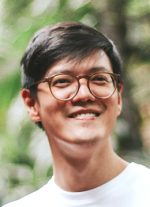Presentation title
Utilization of Traditional Chinese Medicine by Schizophrenia patients in Taiwan : a nationwide population-based study
Scheduled
Day 2, 15:15
Presentation summary
Co-Authors :
Paulo Chong I Lin, MD,
College of Chinese Medicine, China Medical University, Taichung, Taiwan;
Chen-Yu Sung,
Management Office for Health Data, China Medical University Hospital, Taichung, Taiwan,
Hung-Rong Yen, MD, PhD,
College of Chinese Medicine, China Medical University, Taichung, Taiwan
Introduction :
Complementary medicine approaches are a valuable component of healthcare for mental disorders. We aimedto expand the understanding of Traditional Chinese Medicine (TCM) use among schizophrenia patients in Taiwan through a nationwide, population-based study.
Method :
Whole-population data were obtained from Taiwan’s National Health Insurance Research Database. Among individuals diagnosed with schizophrenia, we examined characteristics of TCM users and non-users, as well as patterns of TCM treatment. Data included sociodemographics, comorbidities, medications, conventional care use, and detailed TCM use.
Results :
Among 154,347 schizophrenia patients, 7,545 (4.66%) were TCM users. Herbal medicine was the most usedmodality, followed by acupuncture and traumatology medicine. TCM use was associated with gender, age, geographical context, income, and more frequent use of conventional care. TCM users more often used a broader range of psychiatric medication classes. Top diagnostic codes during TCM visits were related toschizophrenia, musculoskeletal pain, sleep disorders, or constipation. The most prescribed herbs were Polygalae radix, Rhei radix et rhizoma, and Salviae miltiorrhizae radix et rhizoma. The most prescribed formulas were Chai-Hu-Jia-Long-Gu-Mu-Li-Tang, Jia-Wei-Xiao-Yao-San, and Gan-Mai-Da-Zao decoction.
Conclusion :
This study provides a detailed characterization of TCM use among schizophrenia patients, which appears to belower than in the general population. Users may represent a subgroup with greater illness severity, potentially seeking added relief from symptoms or medication side effects. These findings offer additional foundation for research into the role of TCM in this population and may inform integrative healthcare.
Conflict of interest
No

hungrongyen@mail.cmu.edu.tw
Paulo Lin is a psychiatrist from Brazil who received his medical training at the Universidade de São Paulo.
He is currently pursuing a Master’s degree at China Medical University (CMU) in Taiwan, under the supervision of Hung-Rong Yen, MD, PhD, Professor and Dean of the College of Chinese Medicine at CMU, and Director of the Integration of Chinese and Western Medicine at China Medical University Hospital.